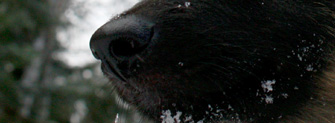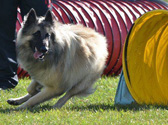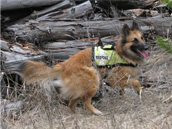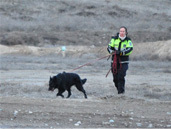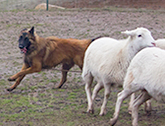Dogs
History and Standards
Available Dogs
Puppies
Health Records
Groenendael
Chittaprasad Jairam du Volant
Tervuren
Aanandi
"Pinkie" Ashwini
"Devi" Bhagavathi
Carmella
Dior
Dru
Gabbit
Jahnu
"Savannah"
Tervuren (Co-owned)
"Radha" Cantata
"Brodie" Bajrang
Christa
Rescues
Kylie's Shambhavi Rose
Litters
Basquelaine 'A' of Intention Hill
'B' of Intention Hill
'C' of Intention Hill
'D' of Intention Hill
'E' of Intention Hill
'F' of Intention Hill
Intentions
Litter Plans
Healthcare & Research
Cancer (Artemisinin and Other Info)
Raw Feeding
Vaccinations
Early Spay & Neuter
Parasites & Remedies
Training
SAR Articles
Recommended Reading
Accomplished Belgians
Resources
©2018 Tracy Wessel
Intention Hill

Promote Your Page Too
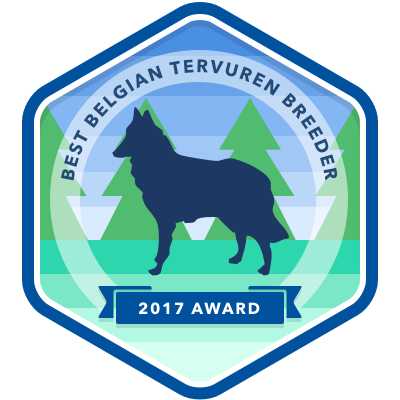
Website Award
Vetary has analyzed top Belgian Tervuren breeders and cross referenced positive social mention data with top analytics platforms. Your site was a clear winner with U.S. pet owners over the last 12 months. For context, Vetary awards breeders with best-in-class online buzz, content, visuals, and most importantly, a strong cause and devotion toward their breed of dogs. |
Search and Rescue
Contact Tracy Wessel for information.
Index to Articles:
Search and Rescue: Puppy Primer, by Kim Gilmore and Tracy Wessel (pdf article)
Getting Started in Search and Rescue,
by Tracy Wessel
Getting Started in Search and Rescue
by Tracy Wessel, Wednesday, March 28, 2012 at 11:24am
I meet a lot of people that express a wish to get involved in SAR. They sometimes look around for how to get started, and meet with some closed doors, or other obstacles. Others are sometimes "referred" to units by existing SAR volunteers or contacts. I like to give people a road map, and let them navigate this path on their own. After all, if you cannot speak for yourself, and are not comfortable interacting with Law Enforcement, what kind of searcher will you be? This is a basic road map for getting started, that I have frequently shared with people, who ultimately did get involved in SAR, quite successfully. Perhaps other SAR cohorts in my FB will add some comments to help others looking to get started.
What is Expected of the SAR Volunteer?
For general volunteer status as a ground searcher, you can expect most units and sheriff's departments to conduct an academy which includes courses in wilderness navigation, survival, crime scene preservation, interviewing, first aid and cpr, a fitness test, FEMA/NIMS classes, and to have attendance requirements for monthly meetings and ongoing training.
Over and above that, as a k9 handler, you have additional requirements. I had two dogs training, so I trained about 4 days per week, a couple hours at night, and then four or more hours on weekends. That was not all for my dog. As a k9 handler, the team is responsible for hiding for each other and all being part of the training and reward system for all the team dogs.
Many organizations require you to demonstrate a commitment to SAR that is not soley based on the opportunity to work your dog. For some this is basic, as for attending meetings and trainings with the general county unit, and for others this is, in my opinion, too far in another direction. For example I know of one group that requires all K9 handlers to first pass training for driving a boat, an ATV, and a snowmobile, as well as becoming a medical first responder. These are great aspirations to learn during your time in SAR, and the efforts should be rewarded, but in my opinion, they do not demonstrate that the group is focused on utilizing the resources at hand, and perhaps eliminates some otherwise dedicated individuals who have only limited time each week, or will only respond for land-based, lower altitude missions. With my county unit, the specialites are separate branches. We have an ATV training and certification program, and only the sheriff's department drives the boats for water search (in my county). Mountain rescue efforts is an entirely different entity, based on our geographic proximity to the avalanche zone. Overly broad requirements can be a lot to ask of volunteers. I feel the basic requirement for being a ground searcher should be the foundation for the specialty units. This way, those with the time and resources can branch out into those specialty units.
Most SAR organizations are either an arm of the Sheriff's Department, or are independent of that, but still responding to Law Enforcement requests. Most have a certification process to document your successful completion of relevant training. This protects the unit and the Sheriff's Department from liability, assures you have the skills for survival, navigation and other matters pertaining to searches and emergency response, and assures your proper training relevant to finding lost persons and providing emergency aid.
Some of the certifications are unique to the organization, some are county or state requirements, and still others are National or International certifying agencies. For example, in Oregon, most counties utilize the standards of the Oregon State Sheriff's Association (OSSA) for the certification process, with recertification for K9s required every two years.
Examples of National or International agencies are:
NASAR, which has their testing requirements listed on their site http://www.nasar.org/
IPWDA http://www.ipwda.org/
NAPWDA http://www.napwda.com/
NASDN http://www.nasdn.org/
So How Do I Get Started?
My suggestion to people interested in SAR is to contact your local Sheriff's department and ask for the Emergency Management office or the Emergency Manager (some departments have only 1 person in charge of this, others have more). Tell them you are interested in serving the SAR organization, and also (it should be clear that your interest is not limited to being a k9 handler) interested in becoming a K9 handler, and would like to know which organizations(s) the EMS office recommends. This way, you avoid wasting time with groups that don't have the respect of the sheriff's organization. I also recommend this method over and above basing your decision on the social enjoyment of a unit. We're here to serve, not run a social and dog-training club. By contacting law enforcement first, you have demonstrated a professionalism in communication with officials, have learned what team or teams they respect and utilize, and might even have the luxury of 2-3 units referred to you, so you can then choose the best fit. The best fit might be based on schedule, training methods, or personal preference.
As for dogs, most units have requirements for type of dog and age of dog. My unit didn't really place so much restriction on the dog. We did this because we found that people truly passionate about participating would get a new dog if their current was not a fit. AND we found that the first dog gave them a practice set of skills.
Some units require the dog to be no more than two years of age to start. I don't like this requirement because some breeds are long lived in their working careers, and others are not. The concept is this: If the team and unit invest the time in getting the dog trained, then they want a return on that investment of a good number of years of service. I find that mentality perpetuates an exclusion of some fine dogs, particularly those obtained from shelters, or that are being repurposed from sports or other activities. I also find that most of the people in my unit enjoyed training, and so the mentality of "let's get out of here" was only limited to the smooth flow of training efforts, so we aren't wasting time with chatting, gossip, etc.
Our k9 unit had some really fine dogs. A lot fell apart due to the economy, as both myself and the team president had to withdraw after extended unemployment, and have both been on hiatus. Others had life changes and retired. This also happened with some of the county units. We were tight as a unit, but as with any group, did not always get along. But what I liked about the unit is that we admired and respected the efforts of each other, so long as the dogs were working proficiently. There was no dictatorship on how the dogs should be trained. This is important because I don't believe in cookie cutter formulas for dog trianing. We had three hunting breeds, one of which was a hunting dog as well as a SAR dog. We had 3 belgians and several GSD. Training was differen for all of them.
So what about non-traditional breeds?
One of my friends reading this note has a Great Dane. Most units would probably just say no. What I suggest, is if you have a non-traditional breed, do some research and find out if that breed has been successful elsewhere. If your unit is unwilling to try the dog based on his drive, temperament, athleticism and health alone, get some handlers that are successfully using that breed for SAR to be a reference. I found record of one handler with a Dane doing SAR.
My Great Dane, Angel, is the only Great Dane in the U.S. who is certified as a Search & Rescue K9. She and I were certified with the North American Police Work Dog Assoc. in Sept. 2011. Danes are intelligent, easy to train, have great stamina, fast runners, and an amazing ability to air scent and ground scent when needed. She is trained for urban and area scearch and is now training for cadaver search. She loves it, and is very good at it.
Okay so you find a testimonial like that. Is the handler willing to let you interview her teammates or Law Enforement to verify her claim? That would be an awesome testament. Does she have any video you could show to your unit to show the dog at work?
How long does it take to Certify a dog?
Some say it takes several years to train a SAR dog. This is bullshit. A dog with good drives and a team that knows what they are doing can train up an air scent dog in 6 months. This is not ironclad, maybe a dog takes a year. But it's not years plural. A trailing dog can train up to certification in 1 year to 18 months. I've known dogs to take as long as 3 years though, but found that the dogs appeared to work very well, and the failures were always in testing (including my own). I think this comes back to the handler apprehension of testing, a lack of sufficient double-blind training hours, and/or a dog that is softer/more sensitive to handler's energy. Some people can train up a detection dog in 6 weeks... put that into perspective. It's about the exactness of your training program, and fequency of training.
What Happens When you Find a Unit?
Those interested in becoming a K9 handler should be prepared that when you find a k9 unit, they may have a probationary requirement that you train with them for a period of time, hiding for their dogs and learning about things, and responding to searches as a ground pounder before being able to bring your dog for training. Some units do this to weed out those that are not dedicated. I also don't like this so much. Our unit lets interested parties come out and hide for the dogs at any time. If they have interest we will let them start training their dog. Why waste valuable time of getting their dog started? They do have to pass the county academy, background check and such, and become certified with the county as a searcher before they can respond to any searches. But if they train their dog concurrently, they can have a certified dog soon after the academy. The academy is six months long, so it's a nice length of time for proving their dedication, and having them learn. Like I said... if they are NOT dedicated, they will move along. Either way, we get "fresh meat" for our dogs to find. I know of some units that require a 1 year probationary period prior to a handler bringing their dog into the unit for training. I dislike this very much. I also know a unit with a residency requirement of 1 year. Another example, in my mind, of a unit not focused on serving the community with available resources. What if you move from another state and are a certified First Responder, have had muliple certified K9s, or are certified for Dive Rescue? Now you cannot be a resource because you just moved to town for a new job? It leads me to question the true intentions of the unit.
A True Uphill Climb
I wanted to add this note. I remember when a friend wanted to start her dog. I suggested contacting the sheriff's dept as above. She was turned away based on a geographical requirement to have a time-based proximity to the SAR Base. She was closer to the next county's base. But the next county had a residency requirement. She was tenacious. Also there was a K9 handler in one of the county's, but there wasn't a strong dog presence. My friend was not to be stopped, got her dog(s) trained and certified with National agencies, and soon formed a K9 unit that regularly responds to the county(s). She had to fight, she had to be stubborn, and she had to form the k9 unit. She was certain to obtain certifications and achieve proficient levels of performance on the dogs, so as not to discredit the effort in the eyes of the Sheriff's Dept. Two Thumbs Up Jillian.
I hope this helps, and please do ask me any questions that you wish, and perhaps some of my SAR cohorts will pipe in and also be willing to answer questions. Be prepared for differing opinions, and may we all lovingly and respectfully agree and disagree with equality.
|
